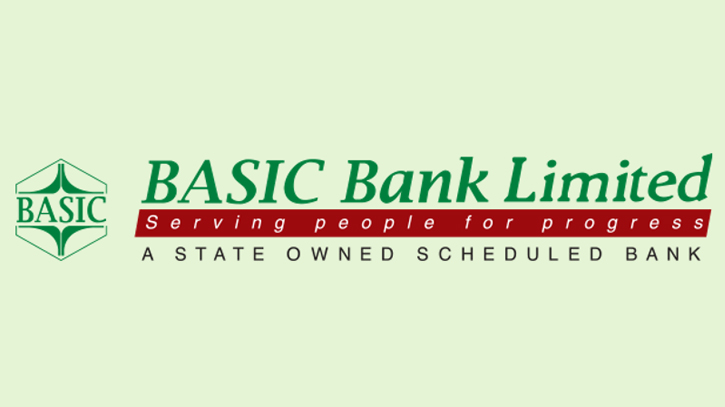
In the past 15 years, Basic Bank, backed by the government, has faced 116 major irregularities that have jeopardized its operations.
These irregularities, stemming from corruption and mismanagement, have left the bank's financial health precarious, with its survival often hanging in the balance.
According to reports from Bangladesh Bank, Basic Bank has been grappling with a multitude of irregularities over the last decade and a half, particularly prevalent in branches located in elite areas of the capital and Chattogram. These irregularities have led to defaults on loans by prominent business groups.
Analysts warn that unless this pattern of irregularities is halted, the bank may face imminent closure. In response, the government is reportedly considering merging Basic Bank with a more robust state-owned bank.
Dr. Mustafizur Rahman, a Distinguished Fellow at the Center for Policy Dialogue (CPD), told The Daily Messenger that Basic Bank has granted loans to various private institutions through nepotism and without proper due diligence, often to entities lacking the requisite qualifications for loan approval. Consequently, many of these loans have turned into defaults.
Moreover, Dr. Mustafizur noted the absence of effective bankruptcy laws in the banking sector, with most cases being adjudicated in the ‘Artha Rin Adalat’ (Money Loan Court Act). Basic Bank continues to grapple with loans extended to its top 10 customers, amounting to Tk 1,700 crore, many of which are considered high-risk.
A report from Bangladesh Bank's inspection department revealed that attempts by Basic Bank to conceal the true loan details of customers such as Haji Abdus Sobhan and Hamida Sobhan at the Karwanbazar branch. Despite significant arrears amounting to Tk 5,61,24,000 for monthly installments on a commercial term loan for house construction, the bank extended the repayment period by one year, until May 13, 2021.
The data reveals significant lapses in Basic Bank's handling of loans and adherence to regulatory guidelines, raising concerns about its operational integrity. Despite clear instructions from the Central Bank, customers like Haji Abdus Sobhan and Hamida Sobhan have consistently failed to meet their obligations, with only Tk 98,00,000 paid by December 31, 2022, far below expectations.
Moreover, the bank neglected to obtain crucial Credit Information Bureau (CIB) reports for these customers, further compounding the issue. Additionally, Basic Bank failed to transfer liabilities to the heirs of Haji Abdus Sobhan as mandated by the sanction letter.
Further scrutiny uncovers breaches of loan regulations, such as those concerning Craftsman Footwear and Accessories Limited at the Shantinagar branch. The bank unlawfully extended grace periods and tenures of term loans, avoiding marking accounts as default in violation of BRPD Circular No 15/2012. Inspectors attribute these oversights to management inefficiency and indifference, compounded by irregular institution visits.
Moreover, the bank's risk management is called into question, with Tk 43.32 crore in customer-funded liabilities by the end of 2022 lacking adequate collateral. Discrepancies between customer-provided addresses and bank records further highlight oversight issues.
In 2020, Pioneer Casual Wear Limited received a Tk 6.50 crore incentive loan to cover worker salaries during the pandemic. However, on August 4, 2020, Tk 31.97 lakh was inexplicably adjusted from the loan account, violating BRPD Circular No. 44/2020.
Dr. Ahsan H Mansur, Executive Director of the Policy Research Institute, criticizes Basic Bank's lax lending practices, questioning whether officials properly assessed loan recipients' eligibility. He highlights Basic Bank's particularly dire situation among government banks, attributing blame to its chairman for the prolonged mismanagement. Despite these glaring issues, no trials have been conducted to hold accountable those responsible.
Basic Bank's woes extend to its dealings with non-bank financial institutions (NBFIs), particularly evidenced by its substantial loan to FAS Finance and Investment Limited, totaling Tk 46 crore. Of this amount, Tk 19,28,66,000 is attributed to a Special Overdraft (SOD) loan, typically requiring 100 percent financing secured by savings bonds or Fixed Deposit Receipts (FDRs). However, Basic Bank accepted an FDR worth Tk 20 crore issued by International Leasing and Financial Services Limited, a defaulting borrower, rendering the FDR unusable.
Despite the invalidity of the FDR, the branch erroneously factored it into reserve calculations, resulting in an understatement of reserves and profits. Furthermore, the remaining Tk 25,76,74,000 lacks eligible collateral, posing significant risk to loan management. These loans are now classified as non-performing, with minimal prospects for recovery.
In Chattogram's Asadganj branch, Basic Bank faces heightened risk due to its substantial loan exposure to M/s GPH Ispat Limited, amounting to Tk 8,549.65 crore, representing 63.78 percent of the branch's total loan portfolio. This concentration of risk leaves the branch vulnerable to adverse impacts in the event of global economic downturns or business disruptions affecting the customer.
Additionally, Basic Bank grapples with loan fraud involving various entities such as M/s Ferro Alloy Company, M/s Trans Ocean Recycling Yard, Pacific Steel Enterprise, Republic Trading Syndicate, Royal Weaving and Coating Industries, and MAH Spinning Mills.
Dr. Salehuddin Ahmed, former governor of Bangladesh Bank, attributes Basic Bank's predicament to ineffective governance, notably the appointment of chairpersons and board members based on political affiliations rather than merit. This practice undermines the bank's operations and leaves it vulnerable to mismanagement and political interference.
Messenger/Fameema








